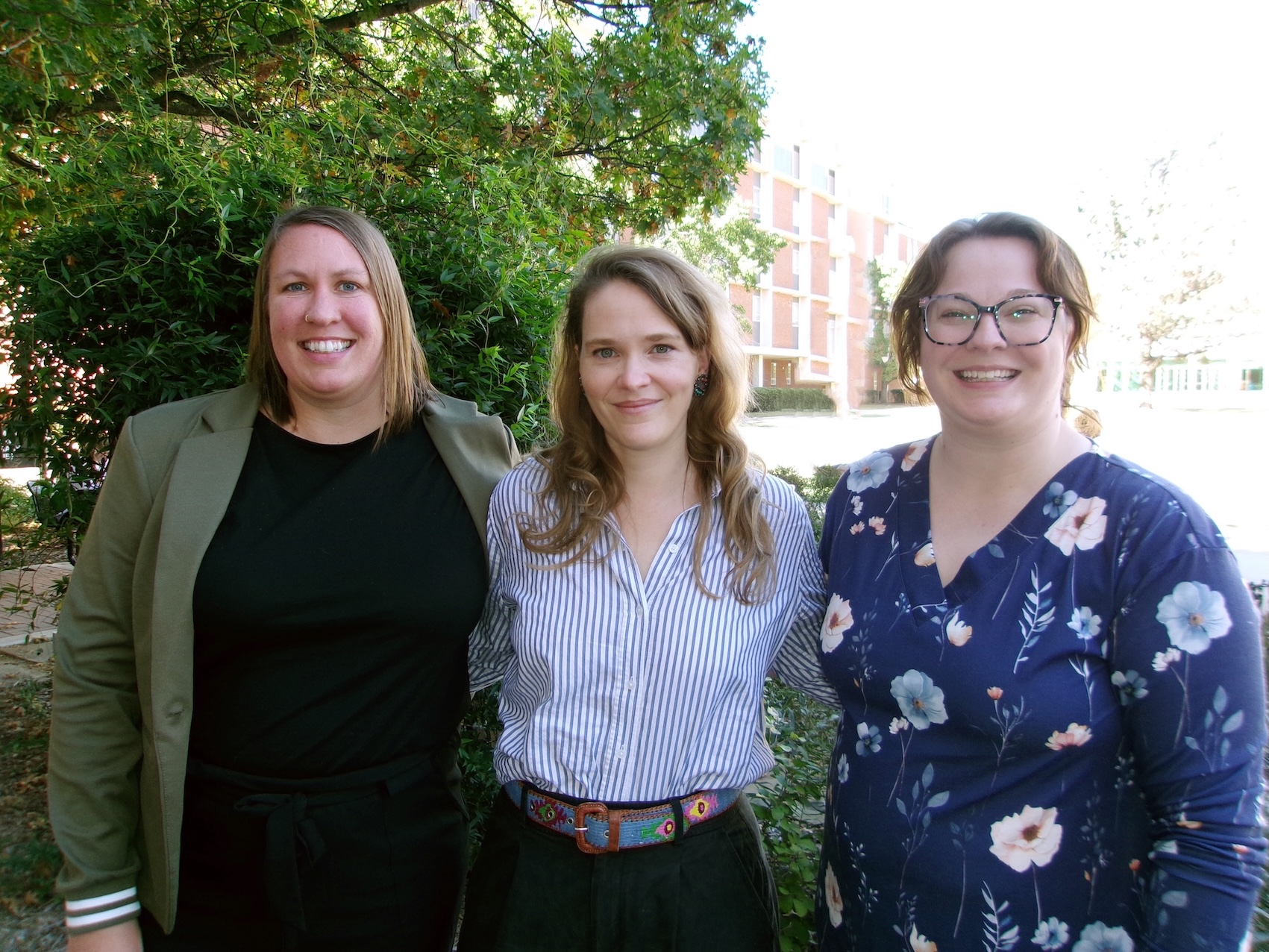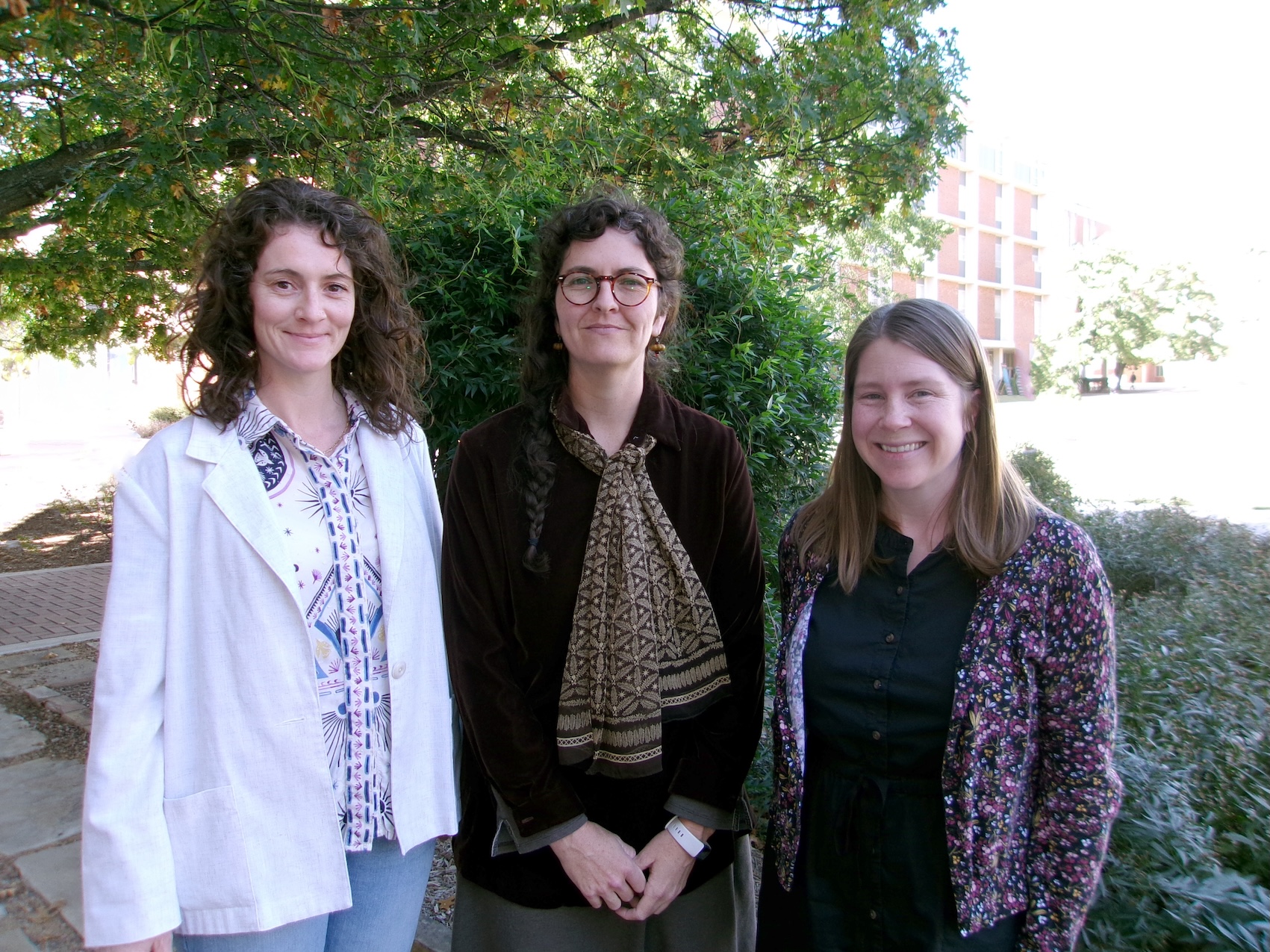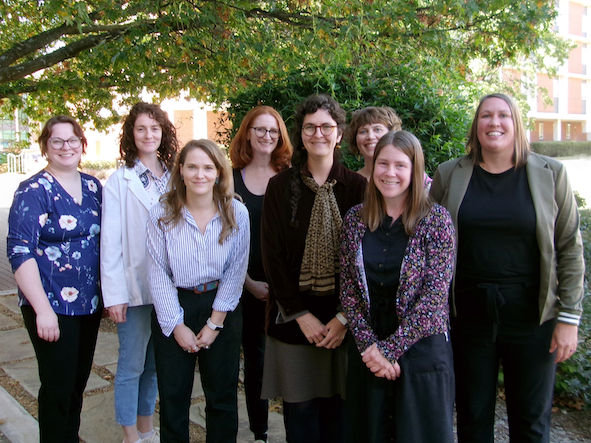Research Group Fellowships
Congratulations to this year's cohort of OSU Center for the Humanities Research Group Fellows!
During the 2025–2026 academic year, these six fellows are embarking on the development
of collaborative research projects around the theme of LAND, and we are excited to see where their work takes them.
This flagship program incentivizes a shift from individual, and often siloed, research
structures to a cross-disciplinary team model, united under a shared research focus,
with the goal of envisioning new collaborative research opportunities.
2025-2026 Fellows:
Land (Group 1):
- Lindsey Abernathy, Educational Leadership & Policy Studies
- Dr. Kathleen Burns, English and American Studies
- Madelyn Powers, History

Land (Group 2):
- Dr. Mette Flynt, History
- Lara Goncalves, Sociology
- Shelby Roberts, Art, Graphic Design, and Art History
During the 2025-2026 academic year, fellows are expected to meet twice monthly with
their research cohort and at least 4 times over the year. During combined meetings,
programs will focus on logistical supportive topics such as grants and funding application
tips, publishing across disciplines, campus resources, mentoring, advocacy, and leadership.
Selected fellows are awarded $3,000 each in funding for the year in respectful acknowledgment
of the commitment required for participation in this program.
The research group topic for this year is intentionally broad to offer a wide range
of inclusive possibilities for collaborative projects. Moreover, all groups may consider
how their projects align with the public humanities, social justice, and anti-racism
work. With this in mind, each group should consider a public-facing component for
their project; examples might include exhibitions, community partner collaborative
programs, open-access resources, or digital products.
Research groups are expected to present a proposal at the culmination of the fellowship
year for putting the collaborative envisioning into action. While creative thinking
for what those collaborative outcomes might be is not limited, examples of outcomes
might include co-authored publications, public programs, exhibitions, digital resources,
collaborative classroom, or teaching opportunities. Applicants should be interested
in exploring creative approaches to addressing social problems and impacting communities
both within and beyond campus. Fellows may include faculty, staff, and graduate students
and may come from diverse disciplines within and beyond traditional humanities areas.
The program aims to bring together complementing perspectives and skills as well as
disciplines, and seeks individual applicants who are open to being matched into groups
with the goal of creating a new research project collaboratively.
Although research in this program can focus on a wide range of topics, participating fellows must be invested in intentionally practicing models that support diversity, equity, and inclusion within the fellow cohorts. This includes respecting a diversity of positionalities from participants and intentionally including participants with different modes of contributing to the group. Cohort members will come with varying degrees of experience and points on a career trajectory, but everyone brings unique contributions to the collaboration. It will be important to acknowledge there will be times when individuals will need to step back, step forward, and/or lift up members within your cohort.
Research Group Fellowship Archive
Fellowship Archive


